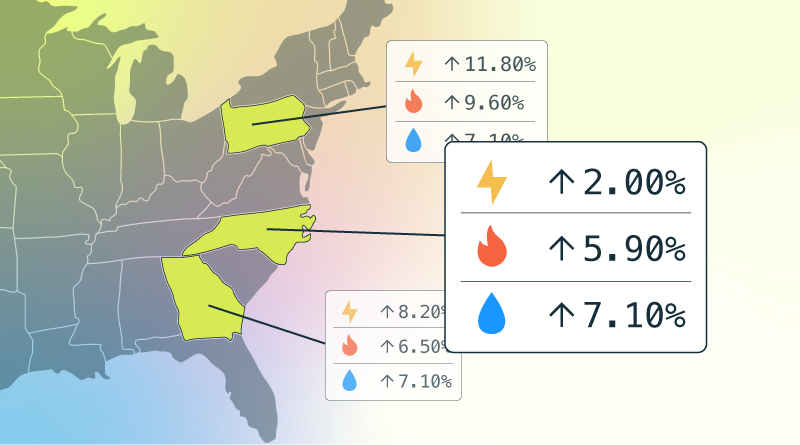The challenge
A major U.S. medical center and research group manages a vast portfolio of utility accounts across electricity, natural gas, water and other services. Prior to EnergyCAP, utility data lived in an antiquated UBMS and manual workflows. Teams faced:
- Long data lags that slowed monthly reporting and sustainability disclosures.
- Manual, error‑prone handling of high‑volume invoices across many vendors.
- Complex bills (e.g., combined water/sewer/stormwater) that inflated “meter” counts and complicated reporting.
- Gaps in ENERGY STAR/portfolio alignment and limited visibility for leased vs. owned facilities.
What they wanted
- A single platform for usage, cost, and emissions across a large, evolving facility portfolio.
- Automation to capture bills reliably and reduce manual entry.
- Clear data structures so line‑item charges don’t balloon meter counts.
- Carbon reporting embedded alongside utility data.
- BI flexibility: dashboards today—Tableau/Power BI options tomorrow.
The EnergyCAP solution
- Automated Bill CAPture to ingest and normalize invoices from a large, diverse vendor set.
- Data model fit for healthcare scale: clear definitions for meters vs. line items (e.g., track electric, gas, water as meters; keep sewer/stormwater as line items where appropriate).
- Carbon Hub added for enterprise‑level greenhouse gas tracking and reporting.
- Reports and Dashboards out of the box, with a path to Report Designer BI for Tableau/Power BI.
- Scalable licensing sized for current needs and future growth.
Implementation highlights
Cross‑functional kickoff. Facilities, Supply Chain, Sustainability and EnergyCAP aligned on scope, timelines, and a right‑sized licensing plan.
Bill onboarding. A representative month of invoices seeded Bill CAPture; EnergyCAP provided import templates for buildings and org hierarchy.
Meter/right‑sizing. Joint workshops standardized definitions (what is a “meter” vs. a “line item”), keeping reporting clean while controlling costs.
Quality controls. Exceptions monitoring flagged anomalies (e.g., supply/distribution splits, atypical usage reads) for rapid correction.
Portfolio structure. Owned vs. leased properties segmented for targeted reporting and sustainability boundaries.
Carbon Hub ready. Carbon data surfaced alongside utility data to support corporate reporting.
Early impact
- Faster data availability by reducing manual touchpoints and centralizing intake.
- Cleaner analytics from consistent meter definitions and portfolio hierarchy.
- Sustainability enablement via Carbon Hub for emissions visibility across the enterprise.
- Less swivel‑chair work for Facilities and Supply Chain; more time for analysis and action.
Why it works
- Designed for complexity. EnergyCAP accommodates summary bills, multi‑line utilities, and campus‑style metering.
- Automation + oversight. Bill CAPture reduces workload while exception handling keeps data trustworthy.
- Sustainability built‑in. Carbon Hub connects utility data to greenhouse gas reporting without spinning up a parallel system.
- Future‑proof. Optional BI connectors and submeter integrations leave room to grow.
Looking ahead
Looking ahead, the medical center plans to strengthen benchmarking and compliance by expanding integrations with ENERGY STAR Portfolio Manager. They also intend to broaden its business intelligence capabilities, leveraging Report Designer BI with Tableau and Power BI for more advanced analytics and visualization. As its needs evolve, the medical center is also evaluating additional features such as submeter and interval data capture, along with advanced accounting tools, ensuring that its energy and sustainability strategy remains flexible, scalable, and future-ready.
At‑a‑glance benefits
- Enterprise‑wide utility and carbon data in one platform
- Automated invoice ingestion with anomaly flagging
- Meter counts aligned to business rules (no artificial inflation)
- Owned vs. leased segmentation for precise reporting
- BI‑ready data for finance, facilities, and sustainability teams










